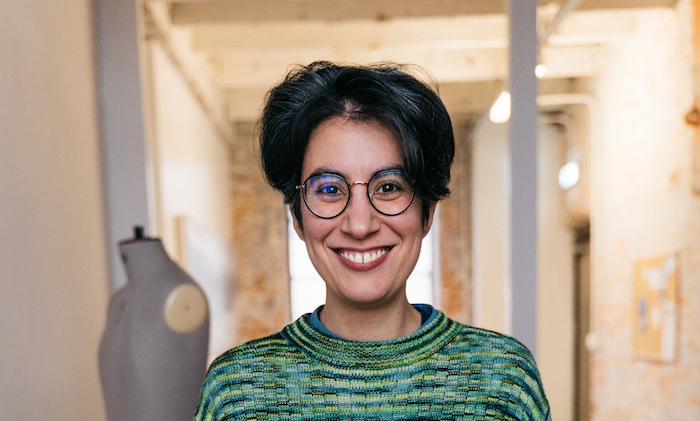Interview with Maria Laura, founder Lalla Wandavi
Did you really think I wasn’t ever going talk about vegan wool alternatives on here? Today we are meeting Maria Laura, who makes beautiful and sustainable vegan knits.
Hi Maria Laura and welcome to TheAlblog interviews! You are the founder of Lalla Wandavi, a vegan knitwear brand based in the UK.
Can you tell us a bit more about yourself?
My name is Maria Laura Wandavi, I was born in Sweden, raised in Italy and came to England by myself as a result of a bet with my mum when I was 19 years old. I did not speak much English at the time, so I moved to a hostel in North London and started studying English whilst working and eventually applied for a fashion illustration course at Central Saint Martins, which is where my fashion design adventure in this country began!
I progressed into my academic studies and after having studied Foundation Studies at London College of Fashion, I ended up being accepted for a Fashion Design with Knitwear Degree at Central Saint Martins. I did not think I would have ended up staying in this country for so long! After 21 years living in the UK, I am now married toJoe and live in the Nottingham countryside with our two gorgeous furry babies, Bruce and Basil. Half of my family lives in Italy and the other half in Sweden, so whenever possible we like to travel and spend our time between those two countries.
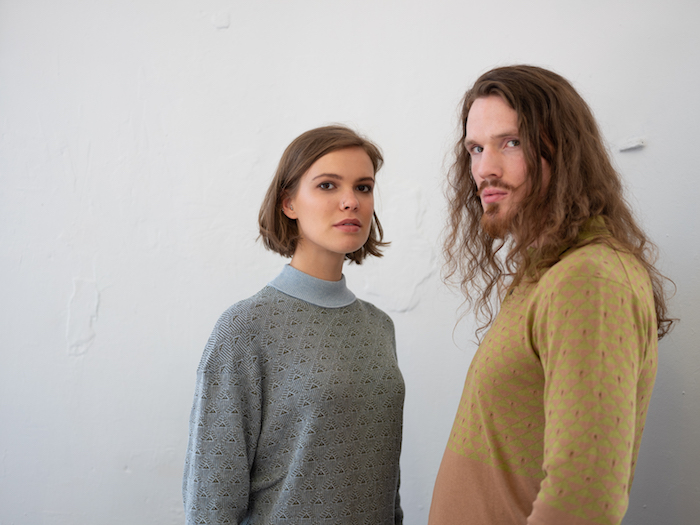
How did your brand come to life?
I first started knitting bespoke garments from my bedroom in when I was living in London, just after I had completed my Fashion Degree at Central Saint Martins. However , it was only after my Master’s in Fashion Knitwear Design in Nottingham and having attended an eye opening, transformative course in London, that I chose to turn my business vegan (I followed shortly after that!) and started researching plant based substitutes for the yarns which I had been using in my past work. I realised , that I did not want to associate myself in any way with the animal exploitation side of the fashion industry. Animals welfare is , for me, very important, and I don’t want to exploit them for their fibres or their skin in any way. I realised I wanted to be a voice for the animal welfare in fashion, so I chose to completely switch to plant-based yarns. Lalla Wandavi was reinvented towards the end on 2016, and I then blended it in with other core values that are still at the heart of my practice: my work is unisex and is made exclusively in the UK. We like to think that people find their own self expression in life and are not in any way defined by fashion. We produce garments which are elegant and easy to wear for any gender. We are very proud to be a British business and produce all of our work in the Midlands, UK.
You created a vegan brand, which means you don’t use wool at all. What are your knits made of and how?
At the moment, the yarns which I use in my work are bamboo, linen and certified organic cotton. Our Linen and Organic cotton come from Italy, from a company called Manifattura Sesia; our bamboo comes from Canada, from a small family run company called Vegan Yarn. Both suppliers use very low impact dyes and are low impact businesses. We are working together with a small sampling unit in the Midlands run by technicians, so our work is made to the highest standards by highly trained individuals.
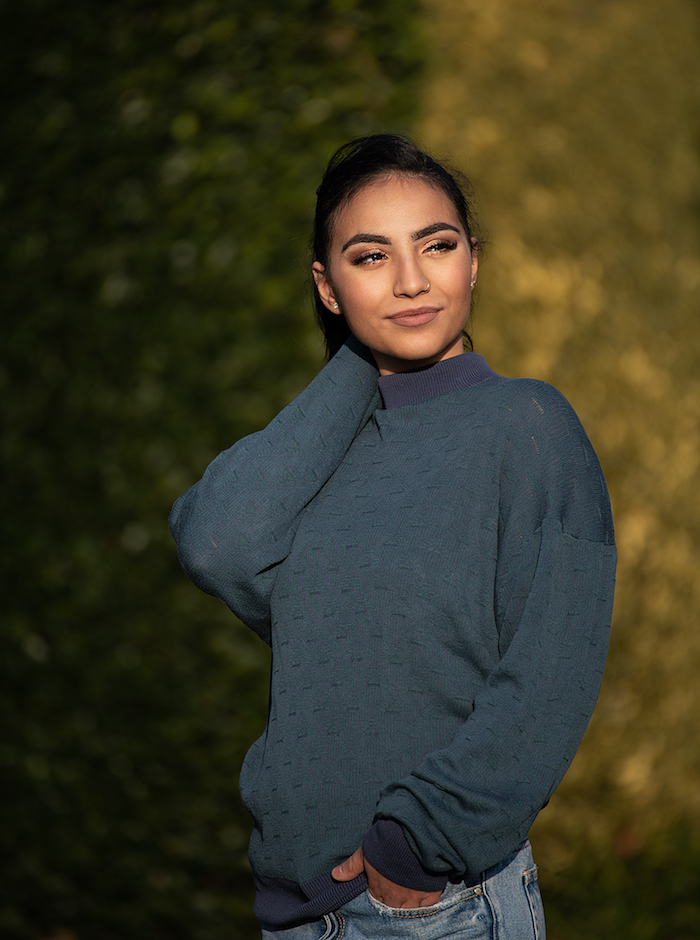
Very often, when people hear the words “vegan knitwear”, they immediately think of synthetic yarns. Why do you think natural alternatives to wool are still so overlooked by ethical fashion brands?
I think that, in today’s society, there is a subtle pressure to use wool.
Wool can now be purchased cheaply, and it is an obvious yarn to go for: it is a traditional fibre which has been used for a very long time.
Coming from a cruelty perspective, the harvesting of wool is not an obvious threat to an animal’s welfare. Sheep are not skinned (such as happens to animals farmed for fur) but are shorn to collect the product and so it may not occur as being painful to the animal. A quick look online though will highlight the hidden issues associated with the wool industry, particularly on the larger sheep farms and I wanted to not only disassociate myself from this, but also help to highlight these ‘hidden’ horrors.
From a technical perspective, wool is a very convenient yarn to knit: being an animal derived fibre, it contains elasticity which plant derived fibres simply do not have. This makes it a safer yarn to knit garments with, as we know how it behaves when knitting industrial quantities of clothes. Essentially it doesn’t break as easily when being used on a knitting machine.
We spent the first year of the business transformation to sample different fibres and see what worked best for our garments and for our business model. It took time and it was a big financial commitment for such a small size business such as ours. We particularly did not want to use synthetic fibres, as we wanted the business to be based aroundnatural fibres, which have zero or very low impact on the environment if left to biodegrade, with no plastic micro-fibres being released into the environment. We want to know that our business not only does not harm our beautiful planet, but it also gives something back, being a small-scale local business, we aim to help the local economy and educating people. This transformation process is on-going and we’re always looking at new ways we can make our business more sustainable.
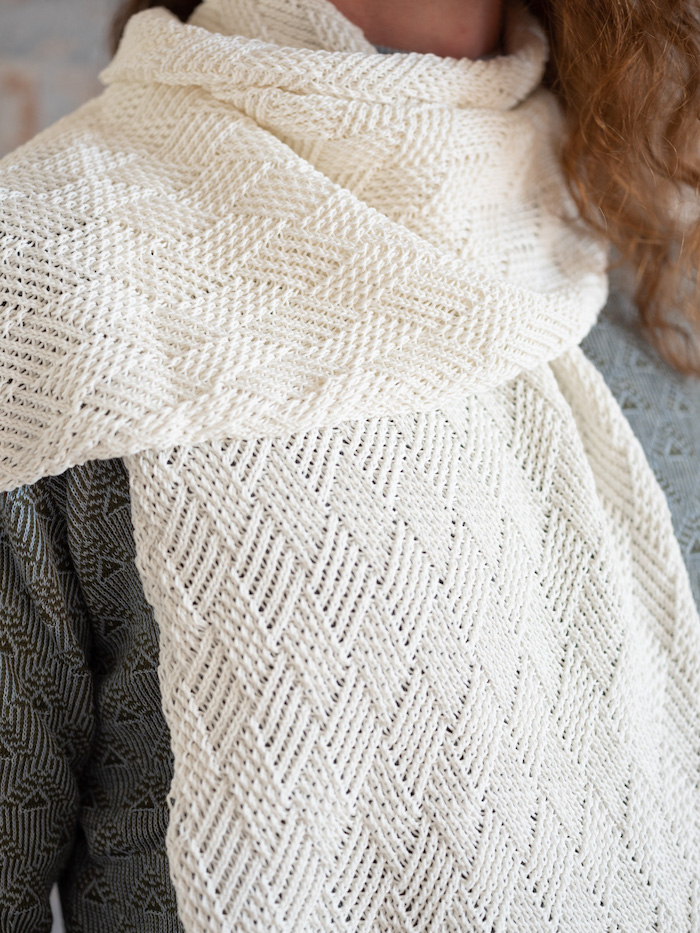
.
What do you enjoy the most in your job and what feels more complicated?
I enjoy the creative side of our work: design and production are my favourite part of the business, and if I could move into the sampling unit I would, as there is so much possibility for the imagination! I am inspired by nature, natural colours and textures, feathers and lichens, tree bark and insect wings.
The aspect of business which can be the hardest, is the promotional side of the business, getting the Lalla Wandavi name out there, whilst showing that we can be kind in fashion if we think our practices through. Vegan knitwear is not currently part of mainstream fashion, or if it is it will be knitted using synthetic fibres. We want to show people that by choosing our work, they make a conscious choice in adopting plant based products which are cruelty-free, are not releasing plastic micro-fibres into the oceans and are manufactured in the Midlands, the historic heart of the UK’s textile industry, contributing to the local economy and supporting the growth of a small scale business.
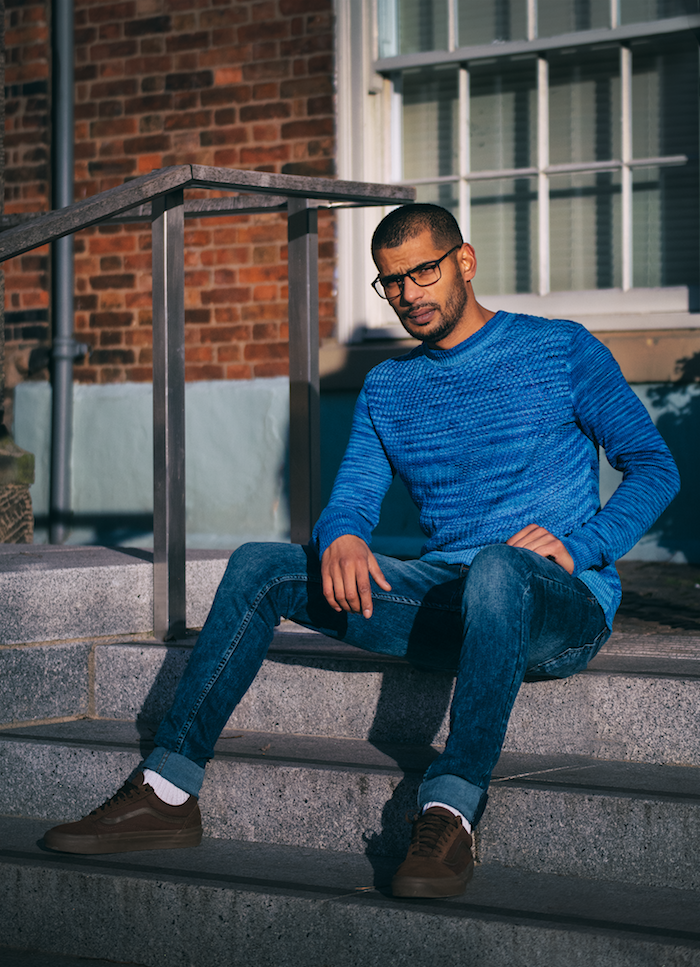
When it comes to food, veganism has grown tremendously the last few years. Is it the same in fashion? Has your customer base grown?
Yes it is definitely the same in fashion because there has been an increase in vegan fashion brands. My customer base has grown, however it is still a very tricky process for me to make our products visible out there. It is only myself and my friend doing this work, and even through we cover most aspects of the business together- I create the pieces and she looks after the digital assets of the business-, it is very difficult for us to get our products known. At the moment we are working very hard to get people signed up to our newsletters so that we can share our values as well as our products. We had planned to participate in a big London-based Vegan event at the beginning of this year, we had been building up to this, seeing it as an excellent opportunity to advertise our work and values, but unfortunately due to the Covid-19 outbreak, the event was cancelled. We’re having to adapt to the situation and not seeing people face-to-face can make it harder promoting our brand, but we are adapting and we’d like to feel that once people see the garments, either in real life or via the website, that their quality and the intricate minimalism of the designs will help them sell themselves.
Where is your brand headed next?
We currently have a few more exciting products which we will be advertising soon, such as “vegan” greetings cards and new accessories such as unisex travel blankets, which can also be used as comforting, elegant shawls. We are very proud to have partnered up with our charity of choice, the RSPB, so all of our sales contribute to the preservation of birds and wild animals , which is a cause we are very committed to. The long-term dream for us is to eventually have our own sampling unit here in the UK. I can just envisage it, being really close to the countryside and have something in place that will make it completely self sufficient and with zero impact on the environment. Whilst we work on this, we are getting ready to start shipping internationally and make our vegan knitted products known throughout the world.
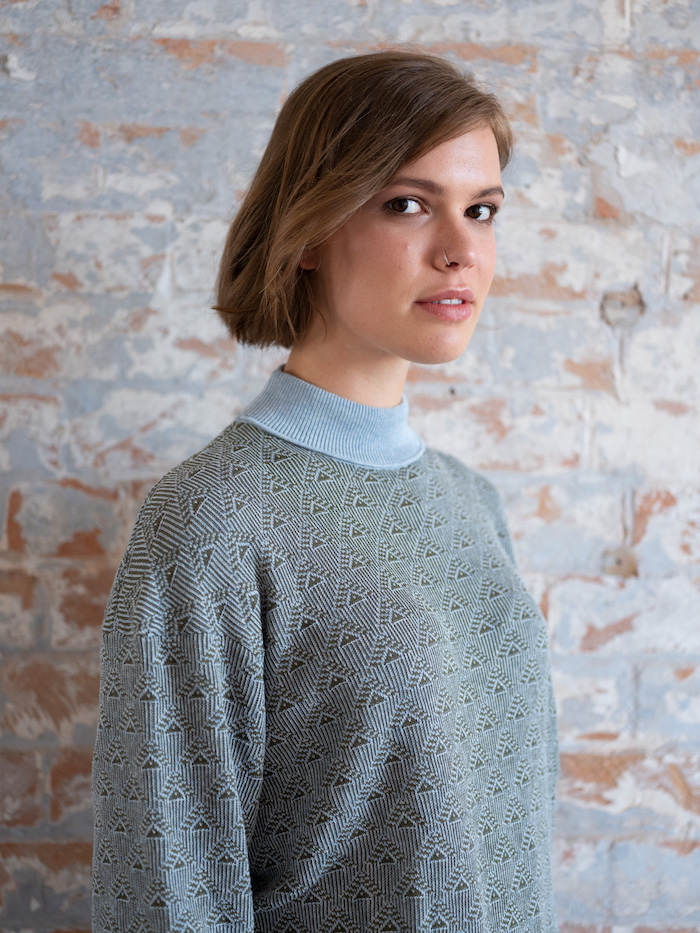
.
And finally, any advice for those who want to start their business too?
When I started knitting, all I had was my domestic knitting machine, a few yarns left from my University degree. I did not have serious money nor idea of where I was going necessarily, except I wanted to give it all I had. My advice to anyone who is interested in starting a business is to just go for it and remember that action is better that no action. We can do anything when we set our mind and our heart to it.

